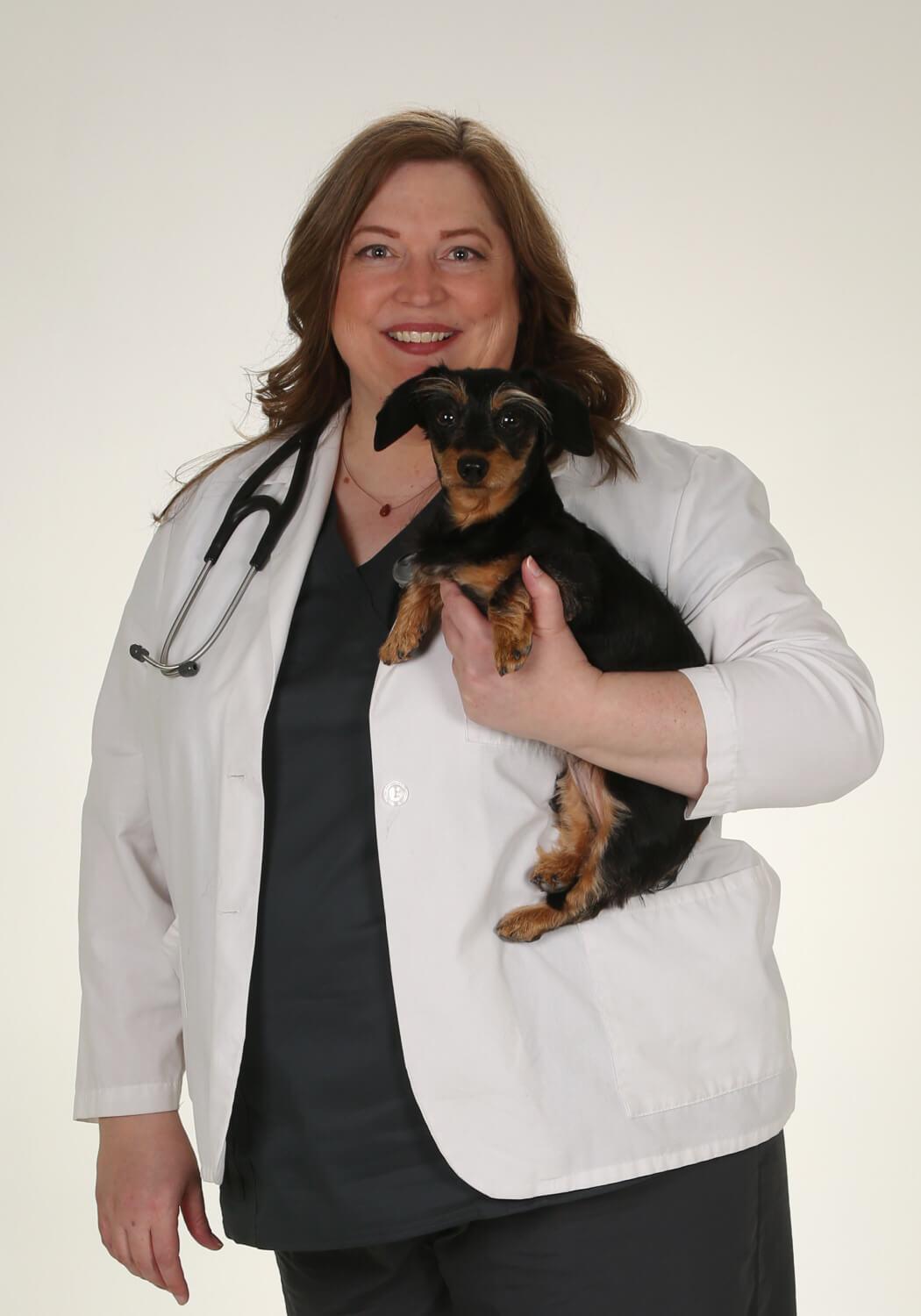What Every Cat Owner Should Know About Dental Care for Cats
There are very few veterinary issues that get overlooked more than cat dental care, which is unfortunately often to the detriment of your favorite feline. Thankfully, you’ve turned to the internet to do some research, so you likely realize that your cat’s dental care is vital to their immune system, organs, and overall health. At GeniusVets, we believe that pet care information should come from veterinarians and not Dr. Google, as the latter is often how misinformation is spread. That’s why we’ve taken cat dentistry FAQs, sent these questions to renowned veterinarians across the U.S., and compiled their replies to get you helpful information that you can trust.
While we've sourced all of the cat dental health information and recommendations below directly from leading veterinarians across the country, please make sure to seek out the advice of your own veterinarian or find a trusted vet near you using the GeniusVets Directory.
What is involved in cat dental care?
The two main parts of cat dentistry are home care and veterinary care. The home care portion primarily includes brushing the teeth regularly three to four times a week, if you’re fortunate enough to have a cat that’s cooperative enough. There are also some dental diets and treats that can help control plaque and tartar, which are the significant issues that are seen in cats, but the thing is that their teeth need to be fairly clean in the first place for these to work. Plaque and tartar lead to gingivitis and periodontal disease. Veterinarians also see some secondary issues arise due to poor dental health. Of course, teeth are what cats use to chew, so if they have some soreness, an infection, or gingivitis, they may not want to eat. That and the fact that cats hide pain so well is why cat dental health is so essential. And unfortunately, dental disease can start in cats as young as two years old, which is why regular exams are so critical, as you don't want your kitty to suffer.
At Home Cat Dental Care
Keeping your cat’s mouth healthy is an essential part of their overall wellness. From plaque control and fresh breath to long-term dental disease prevention, these products support at-home dental hygiene between professional veterinary cleanings. Before starting any new dental care routine, consult your veterinarian for personalized recommendations.
Cat Dental Care Products
- Cat Dental Cleaning Kit: A complete kit with a toothbrush and paste made for felines—gentle, effective, and a great starter for home care.
- Petsmile Professional Pet Toothpaste: VOHC-approved, safe to swallow, and requires no brushing—ideal for picky cats who dislike dental routines.
- Cat Oral Care Supplement: A liquid supplement that promotes gum health, reduces plaque, and supports fresh breath with daily use.
- Cat Dental Finger Wipes: Quick and easy alternative to brushing; swipe along the gumline to remove debris and freshen breath.
- Minties Dental Treats for Cats: Crunchy texture and minty freshness help clean teeth while being a tasty reward.
- VetriScience Perio Plus Cat Teeth Cleaning Bites: Formulated to reduce plaque and tartar while supporting gum health and fresh breath.
- Virbac IntelliDent Cat Bites: Bite-sized dental treats from a trusted veterinary brand that promote oral health through daily snacking.
- Virbac Enzymatic Toothpaste & Silicone Finger Brush Set: Poultry-flavored toothpaste paired with soft brushes designed for cats and small pets.
- Dechra Vetradent Water Additive: Just add to your cat's water bowl to reduce plaque and freshen breath—no brushing needed.
- Dechra Vetradent Dental Wipes: Alcohol-free and safe for cats, these wipes help remove bacteria and reduce odor-causing buildup.
- Dechra Vetradent Dental Spray: A minty oral spray that combats plaque and supports a healthy mouth with simple daily application.
| Product | Form | Highlights |
|---|---|---|
| Cat Dental Cleaning Kit | Kit | Complete starter kit with feline toothbrush and toothpaste |
| Petsmile Professional Pet Toothpaste | Toothpaste | No-brush, VOHC-approved, safe to swallow |
| Cat Oral Care Supplement | Liquid Supplement | Supports plaque control and fresh breath |
| Cat Dental Finger Wipes | Wipes | Simple to use, reduces plaque and odor |
| Minties Dental Treats for Cats | Dental Treat | Crunchy texture, minty breath support |
| VetriScience Perio Plus Cat Teeth Cleaning Bites | Dental Treat | Targets plaque and tartar, daily oral support |
| Virbac IntelliDent Cat Bites | Dental Treat | Vet-recommended, tasty and functional |
| Virbac Enzymatic Toothpaste & Finger Brush | Kit | Enzymatic paste + gentle brushes for cats |
| Dechra Vetradent Water Additive | Water Additive | No brushing needed, freshens breath |
| Dechra Vetradent Dental Wipes | Wipes | Removes debris and supports clean gums |
| Dechra Vetradent Dental Spray | Spray | Easy breath freshening and plaque support |
Top Pick
For ease of use and daily effectiveness, VetriScience Perio Plus Cat Teeth Cleaning Bites are a great addition to any routine. They're simple, tasty, and support both teeth and gum health.
How does dental health impact the overall health and wellbeing of my cat?
Unfortunately for caring pet owners, cats are very good at hiding pain and discomfort. Instead of making you aware that they’re in pain, they’ll typically get more reclusive. When they have dental disease, a bad or broken tooth, a loose tooth, cavities, gingivitis, or any sort of mouth pain, it can be hard to detect that. Pain affects their overall quality of life. If they have a painful mouth, they’ll often hide it really well until it's gotten to the point where they can't hide it any longer.
Dental disease is a factor in a cat's general health. The mouth affects the whole body. We all know how our gums, tongues, and lips bleed when we bite them, and dental disease in a cat is an infection in the mouth. And that infection easily gets into the bloodstream. It can affect the heart, kidneys, and liver. By keeping your cat's mouth healthy, you can add two to three years to the pet's life. And then there's always the discomfort to consider.
When cats see a veterinarian and treat their dental disease, they send them home with a pain-free mouth. Cat owners will often tell us how much more relaxed, interactive, and comfortable their cat is after getting their dental disease treated. Of course, you want to help your cat avoid unnecessary pain by providing excellent dental care.
What are the signs and symptoms of oral health issues in my cat?
The number one symptom of dental issues is breath. Bad breath in a pet is not normal, particularly in cats. Many pet owners assume that bad breath comes with the territory but, in reality, it tends to be dental disease, oral disease.
Other signs and symptoms of oral health issues in cats are as follows:
- Cats who drool because their mouth hurts
- Appetite decreases
- Sometimes food will drop out of their mouths as they try to eat from a bowl
- You may see them shift the food from one side of the mouth to the other, away from a painful area in the mouth
- There have been instances in which people think their cats are on a hunger strike, but no, they’re not eating because their mouth hurts
- They can paw at their face if they have a painful tooth
- If you open their mouths, you might see red, inflamed gums
- Excessive grooming
- Weight loss
- In more serious cases, vomiting or diarrhea
Some clients have even reported that their cat started to drink a lot of water. In other words, these are changes in behavior that are not normal for your cat, which can indicate dental pain.
What are the things that veterinarians look for when examining a cat's mouth?
They look for plaque and tartar buildup on the crowns of the teeth just like you and I would get but they're more closely checking out the gums. We’ve all heard of gingivitis or gum inflammation due to disease underneath the gum line, which is where our concern is in pets. But vets will sometimes see a syndrome called stomatitis complex in cats, which is a severe allergic reaction of the mouth to the teeth, and it can cause a ton of pain and severe dental issues. They also sometimes see loose or broken teeth. Cats also get a syndrome called tooth resorption, where they get a cavity just below the gum line that causes the teeth to be resorbed by the body. In sum, your veterinarian looks for all kinds of things, and there's always the possibility of a tumor, mass, or growth in the cat's mouth as well.
How will a veterinarian diagnose dental problems in cats?
The first thing your vet will do is a complete physical exam. You schedule an appointment for your cat and they look in the mouth during the exam and look for signs of dental disease, gingivitis. While most cats are amenable to us looking in the mouth, a dental x-ray is often the best way to determine what’s going on in there. Most veterinarians will suggest full x-rays of the mouth for any dental procedure because the disease is often below the gum line, so they need to take x-rays so we can see the roots of the teeth. Based on what they find during the procedure and during the dental cleaning and x-rays, we call and discuss if any extractions may be indicated and get you an estimate based on the complete picture.
What are some possible conditions that are caused by poor dental health?
The biggest consideration for cats is pain, as that can be a quality of life concern. Cats get what are essentially cavities that are called resorptive lesions. Sometimes you can see them on the tooth. They're like little red holes or divots in the tooth. Those can be really painful and, again, can affect the cat’s quality of life. Some cats get viral infections that can cause severe gingivitis and infection in the mouth. Bacterial shedding from the mouth into the body can affect all other organs—the heart, liver, and kidneys—which is why your vet recommends doing routine blood work to make sure that the organs are functioning before they do any anesthetic procedure.
It’s much better to deal with the problem before it reaches the point of it affecting other organ systems because once other organ systems are affected, that becomes a much more terminal situation than dealing with the mouth. If you catch an issue soon enough, then you have to treat the organ dysfunction first before you can even truly address the mouth, which is the root cause. But it's essential to get the kidneys or liver functioning well enough to handle the dental disease.
The AVMA is also an excellent resource when it comes to cat dentistry. If you have further questions about your cat’s dental health, reach out to your vet. If you don't have one yet, we can help you find a local veterinarian!
The Following Veterinarians
Contributed To The Cat Dentistry Information On This Page


The Ultimate Guide
to Cat Care
This free guide is an indispensable manual for cat ownership. Filled with veterinary advice and recommendations on every important topic at each stage of your cat's life, this is all the stuff that responsible cat owners need to know. That is why we are making it free!




